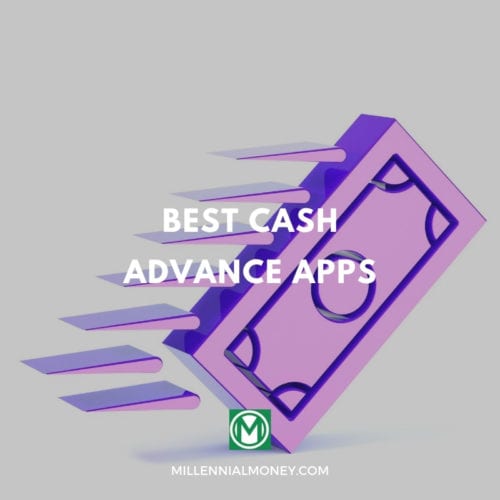There’s a common cliche that American students don’t learn enough about financial literacy in school. In fact, money management, tax planning, and other financial topics routinely show up as the top skills that Americans wish they learned more about during school years.
Fortunately, there’s something you can do about it. The financial education world is increasingly moving online, and there are plenty of ways for you to become an expert on financial matters without leaving your home.
Hundreds of free and low-cost online personal finance classes exist that cover everything you need to know about financial management.
The skills and knowledge you’ve been looking for are literally just a few clicks away.
11 Best Personal Finance Courses for 2025
Here are the 11 best personal finance courses that you can take right now:
- Complete Practical Guide to Personal Finance For Beginners — Udemy
- Financial Literacy — Alison
- Introduction to Personal Financial Planning — edX
- Financial Planning For Young Adults — Coursera
- Investing Basics For Millenials — Skillshare
- Personal Finance — Khan Academy
- Finance Fundamentals: Financial Planning and Budgeting — FutureLearn
- Personal Finance Masterclass: Easy Guide To Better Finances — Udemy
- Personal Finance Courses — Brigham Young University
- Financial Freedom: A Beginner’s Guide — Alison
- Personal and Family Financial Planning — Coursera
1. Complete Practical Guide to Personal Finance For Beginners: Udemy
- Cost: $99.99
- Get Started: Complete Practical Guide to Personal Finance for Beginners
The Complete Practical Guide to Personal Finance For Beginners, which is found on Udemy, is a crash course in everything personal finance.
This course covers everything from managing debt to planning for retirement, with a ton of strategies for building wealth in between.
The class is also easy to understand, making it the perfect introduction for those who may be new to financial terminology.
With a robust curriculum that can be completed at your own pace, you don’t have to worry about overworking yourself as you take steps toward improving your financial future.
If you haven’t heard of Udemy before, it’s a massive online course platform that was founded in 2010 and has served over 400 million students across 130,000 courses.
Courses on Udemy vary in price depending on the instructor, though most are offered free or at a very low cost. They also frequently run sales and discounts, so keep an eye out.
2. Financial Literacy: Alison
- Cost: Free
- Get Started: Financial Literacy
If you’re looking for a basic course to learn about banking, credit cards, and retirement planning, you should check out Alison’s Financial Literacy course.
Starting with an overview of bank accounts, you’ll quickly move on to managing credit card debt and learning about retirement accounts.
The course takes from 6 to 10 hours and sets you up with the know-how to take the next steps outside the classroom.
This course is perfect for people who may be new to finance. However, Alison also offers a wide variety of finance classes designed for all levels of students.
Founded in Ireland in 2007, Alison has grown into an international powerhouse with 17 million students in 195 countries.
The organization places an emphasis on social change and providing education for anyone who wants it. And the best part? All of their courses are free.
3. Introduction to Personal Financial Planning: edX
- Cost: Free (Verified Certificate of Completion $199)
- Get Started: Introduction to Personal Financial Planning
Introduction to Personal Financial Planning, offered by edX, provides a comprehensive overview of personal finance.
As a student, you’ll learn from videos and associated reading materials, and self-paced activities.
The class is offered through Indiana University and takes a step-by-step approach that begins with the basics and builds up to a broad overview of financial concepts.
In week one, you’ll get a high-level overview of personal financial planning. From there, you’ll quickly get the opportunity to develop skills in budgeting, tax planning, and financial growth.
The course lasts 4 weeks and is designed for students to spend around 4 to 6 hours per week. You can also take it at your own pace.
If you haven’t heard of edX before, it was created as a joint venture by Harvard and MIT. The platform online offers classes through top-ranked universities and companies from around the world.
Most edX courses are free, with the option to pay for certification when you finish the material.
4. Financial Planning For Young Adults: Coursera
- Cost: Free to Audit, $49 to enroll in the course
- Get Started: Financial Planning for Young Adults
Coursera’s Financial Planning For Young Adults class provides an overview of financial planning, with a strong focus on setting personal goals and tailoring your approach based on those objectives.
While the content is created with young adults in mind, the skills and strategies are useful for anyone looking to improve their financial situation. The course is taught by professors from the University of Illinois and offers financial aid for those who qualify, as well as a certificate upon completion.
Coursera is a leading online learning platform that partners with universities and industry educators to provide low-cost online education. They also allow you to “audit” classes for free, which is pretty cool. This means you can access all of the course materials without paying anything. But, if you want to get grades or feedback on your assignments, or if you want certification, you will have to pay.
5. Investing Basics For Millenials: Skillshare
- Cost: $8.25/month with a 7-day free trial
- Get Started: Investing Basics for Millennials
Investing Basics For Millenials provides an efficient overview of personal investment strategies. The course is specifically for those born after 1980 who are interested in investing
This class is the first in a series of investing courses for millennials and shows you how to develop the building blocks to start growing your money.
It is a perfect starting point for those who want to learn about the fundamentals. In under an hour you can learn about things like compound interest, the importance of investment diversification, and historical trends.
Skillshare is a subscription-based platform that gives members access to thousands of online learning tools, with creativity and collaboration at the core of everything they do.
6. Personal Finance: Khan Academy
- Cost: Free
- Get Started: Khan Acadamy’s Personal Finance Course
Khan Academy’s Personal Finance Course starts with basic concepts like saving and budgeting. The course then moves on to cover real estate, and how mortgage debt factors in. Next, you will learn about investments and retirement planning.
The class also acknowledges that all financial situations are unique. So, whether you’re renting or buying, single or married, you’ll be covered.
Khan Academy is a non-profit organization that offers free courses in a wide variety of subjects, with education levels from K-12 to adult learning. The organization has a simple but ambitious mission: To provide a world-class education for anyone, anywhere.
Additionally, Khan Academy runs entirely on charitable donations, so all classes are offered for free without any ads or upsells.
7. Finance Fundamentals: Financial Planning and Budgeting — FutureLearn
- Cost: Short courses are free, with the option to pay for individual classes, or pay for certification. You can also pay $279.99 annually for unlimited course access and certifications.
- Get Started: Finance Fundamentals
Finance Fundamentals, which is offered by FutureLearn, emphasizes the importance of how various economic conditions might factor into an individual’s personal financial situation.
From there, the course promises to teach you how to better manage your finances.
The first part of this course helps you come to terms with your current financial habits. Then, the class explores long and short-term financial decision-making, as well as outside factors that should be considered (like your income, or debt obligations, or if you should consider hiring a financial planner).
FutureLearn offers access to their short courses for free, with the option to upgrade an individual class.
You can also get unlimited access to all of their courses and certifications for a somewhat hefty upcharge.
8. Personal Finance Masterclass: Easy Guide To Better Finances — Udemy
- Cost: $99.99
- Get Started: Personal Finance Masterclass
Udemy’s Personal Finance Masterclass encourages students to drop everything that they think they know about finance and start with a clean slate.
You’ll be challenged to come prepared with an honest evaluation of your current financial situation. Despite debt or limited savings, you’ll learn to design a plan that works best for you.
The course promises to provide sound financial information, while also looking at money through a psychological lens. Created by self-described “personal finance hackers,” the class hopes to “teach normal people to truly understand how money works”.
9. Personal Finance Courses: Brigham Young University
- Cost: Free
- Get Started: BYU Personal Finance Courses
Brigham Young University (BYU) provides a variety of Personal Finance Courses that cater to all levels of financial understanding.
This school offers multiple classes in each section, from beginner to intermediate, to advanced. So, whether you’re just starting to learn about the finance world, or if you’re a seasoned vet, there’s a course for you.
They even offer classes for different age groups. For example, there’s a course for high school students, those who are starting a family, and more.
Brigham Young University is owned by the Church of Jesus Christ of Latter-day Saints, so some of the material in these courses is presented through a religious lens.
However, there is more than enough useful information here to help anyone that wants to learn more about finance, even if religion isn’t your thing.
10. Financial Freedom: A Beginner’s Guide — Alison
- Cost: Free
- Get Started: Financial Freedom – A Beginner’s Guide
Financial Freedom: A Beginner’s Guide is the natural next step from Alison’s previously-mentioned Financial Literacy course. Taking things a step further, you’ll learn in detail about steps you can take to get (and keep) financial security.
If you’re the type of person that is worried about making the wrong financial moves, this course might be a good option for you.
That’s because they place a heavy emphasis on risk management, and on how to identify common financial mistakes.
By the end of the course, you’ll have a better understanding of things like mortgages, estate planning, and how to calculate your net worth and cash flow.
11. Personal and Family Financial Planning: Coursera
- Cost: Free to audit or $49 for full enrollment.
- Get Started: Personal and Family Financial Planning
Personal and Family Financial Planning, offered by the University of Florida, covers a wide range of personal finance topics and situations that might apply to students from high school age through adulthood.
This course is a solid option for those looking to build a sustainable financial foundation in the real world.
With that in mind, you’ll learn about the basics, like how to set up a savings account and manage your credit score.
You will also learn how to invest in mutual funds, and how to build a personal financial plan of action that aligns with your long-term goals.
Personal and Family Financial Planning is 9 weeks long, and each week is broken out into 2-hour sections. If your schedule is too busy, don’t fret. You’ll have the option to reset deadlines according to your schedule.
The Best Personal Finance Course For You
As you can see, there are a ton of high-quality personal finance courses out there to choose from, there are also great personal finance books you can read up on. The right course for you depends on your unique situation and your financial goals.
Are you looking for something that’s free and simple, or more advanced?
Do you want to learn about how to optimize your spending habits, or get out of credit card debt?
Are you looking to earn passive income with an investment account, or to put some money away for retirement?
Whatever your goals, investing your time and energy into your personal financial growth is a smart move, and it’s never been easier to make that happen.
It’s all too common to fall into patterns that slow down your financial growth, or in some cases get it moving in the opposite direction (like racking up unsecured credit card debt). Don’t let that happen to you.
If you’ve struggled with personal finance in the past, or simply hope to take your current skills further, now is the time to get on it.
Here’s to investing wisely in your future. I’m rooting for you.





No comments yet. Add your own